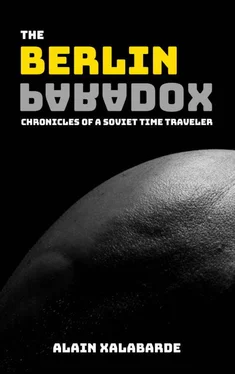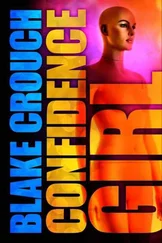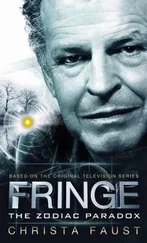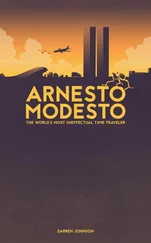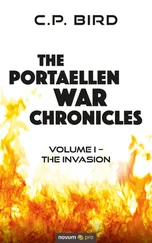He spits out a sound in Turkish that can be nothing else but a curse word. He reaches into his pocket and hands me a west German passport. I open it and find my face on it. He tells me to keep it. I take the opportunity to ask how long we’ll be driving for. He says it’ll be only a few blocks away. I’m about to ask about the border he mentioned before I fell asleep earlier, but the road ahead of us holds the answer. Not far now, I see a grey wall looming across the buildings. This wasn’t here yesterday. By yesterday I mean years ago, back in 1960.
We reach a barricade guarded by two soldiers. Burak greets them. One of them is also of Turkish descent. They shake hands amicably. We drive only a few meters further and we stop at a second border. There, Burak’s stance is more formal, patiently waiting for the guard to walk up to the window. He then offers him an envelope and they both nod. The security bar is raised and we drive through.
I look through the rearview mirror as the ugly cement wall disappears in the distance. I ask Burak when the wall was built. He says it was in 1961, briefly after I travelled. He attempts to quickly explain the politics behind it, but his sentences tangle into a messy construct, leaving me without any clear picture of what actually happened. He is quickly aware of his rambling and stops himself, only to point out that I cannot easily cross from one side of the city to the other anymore.
The lights seem different in the east. It’s darker. Even the weather seems to be colder. I’m sure it’s only my imagination. But I do feel more at home here. The tenebrosity is my friend.
As Burak drives I soak in the beauty of the city. I do notice some minor changes. New residential buildings mostly. But the essence — the spirit — is still untouched.
After what seems like ten minutes, we arrive at the Resurrection Church. It has been partially renovated, but not enough to reflourish its former glory. Burak stops the car a few meters away from the entrance, right below a broken lamp post that now only casts a shadow on the vehicle. I take the gesture as a sign for me to get off. His engine is still running though, and his hands are firmly holding onto the steering wheel. I push myself off the low seat and onto the pavement, taking one more look at Burak before I leave. He wishes me good luck with a neutral tone. I ask if we’ll see each other again while I close the creaking passenger door. Through the open window he replies that he is certain of it. The engine coughs and he drives away.
I am left in the silence of the night with no one around. My only choice is to walk towards the cemetery. I walk to the mausoleum and try to open the door. It is shut. I knock. Nothing. I pull the handles. They won’t budge. I knock again. No signs of anybody. I return to the church. It’s too dark, and the cemetery is creeping me out. I look up and down the street and see nowhere to go. I only wish Burak would have waited for me to enter the building before driving off.
An unforgiving breeze forces me to curl up on the floor, besides the main door to the Resurrection Church. I close my eyes, burrow my head in between my arms and wait for morning, hoping for the best.
I am awoken by her. Her head blocks the sun and all I can see is her silhouette. A rim of light around the edges makes her blond hair glow like the moon during an eclipse. She whispers and caresses my face. I’m still half asleep. My eyes still sticky. I take my time to accommodate to the brightness of the new day. She doesn’t wait. She grabs me by the arm and forces me on my feet. Her soft manners suddenly turn aggressive. Or maybe it’s just me waking up and being more aware of reality.
She asks me what I’m still doing out here. I explain her about last night. She curses Burak and assures me that this wasn’t the way it was supposed to go down. She taps my jacket with the palm of her hand, dusting it off. We leave.
She’s obviously older than the last time I last saw her — in her forties, I’m guessing — but she stills maintains an enchanting attractiveness through the years. I ask her where we are going. She says they’ve relocated their laboratory to a safer location. I ask her if I can stay at her place tonight, or at least until the next trip. She points that her husband wouldn’t be happy about it. Ok, she’s still married.
We get into a car. She drives. She drives south. She doesn’t speak. We drive by Treptower Park and it reminds me of my childhood. The very first time my mother brought me to Berlin. It was years after the war. Years after the death of my father. I was already in my late teens. My sister was studying and couldn’t join us on this trip. On the second day of our stay in the city, my mother brought me here, to the Soviet Memorial. I must have been seventeen at the time. I remember the feeling as if it were happening right now. It was the most impressive thing I had ever seen. She held me tightly by the arm and we walked. From the weeping statue of a mother to the heroic pedestal where a soldier held a child in his arms. My mother kept silent the whole time. She didn’t speak a word until we exited the grounds. She limited herself to reading the inscriptions and taking a deep breath once in awhile. Her eyes seem to be lost somewhere. The trip was intended for me to learn about my father. Though she never actually said a word about him. It was almost as if she just expected me to intuitively understand who he was by simply walking around the city. I desperately looked for clues, but I never got a concrete answer. A week later we were on the bus, on the way back to Kaliningrad. Back home. Having learnt nothing new about my father.
The blond woman parks the car and asks me to follow her. She takes me through a lush park. Incidentally, there seems to be a lot of people taking the same route. Most of them holding children by the hand.
A few meters later I understand. They’ve built a new theme park. Never seen it before, but apparently it’s here to stay. Kulturpark Plänterwald, they call it, and it’s yet another proof of East Berlin’s prosperity. However, I can’t help but wonder what the blond woman and I are doing here.
She buys two currywursts and we calmly walk down the park. I ask her when I will get to speak to the doctor. She says the doctor has disappeared.
I stop in my tracks. She looks at me intently but nudges me to keep on walking. I continue following her.
I ask her what she knows. She says that, one day, he simply never showed up to work. I throw my currywurst in a garbage can and grab her by the arm. Why has nobody told me this yet? She says it’s not important. I know she is lying — it has affected her more than she would have liked. She contains her emotions and assures that the project is still functioning as usual. She is running it now.
I try to find out when it happened and she dismissively says it was only a couple of weeks ago. I ask her to tell me more about his disappearance, but she says it’s not a good idea. She says I could be tempted to change the past somehow. We don’t know what the consequences of something like that may be. She keeps walking forward.
Her hope is that he is only missing temporarily, but she expresses her worry that someone may have been trying to sabotage the project. They think it may be western spies, but nothing is confirmed. The GDR themselves don’t know what we’re doing — it is very unlikely that the West would have found out. Could be an inside man. Someone working for the USSR maybe.
She repeats that they’ve relocated the central laboratory. I know this already. She explains that they’ve found yet another portal underneath the Queen Elizabeth Hospital. The Soviet government has procured the area and turned it into a hospital for Russian soldiers, which will allow us total discretion. This newly discovered underground site has also revealed undamaged documents that may prove very helpful in our search for other portals.
Читать дальше
